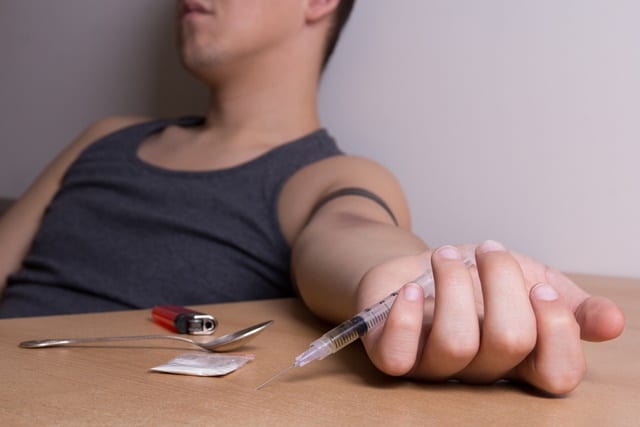Addiction is a condition that affects millions of individuals worldwide. While there are various treatments available, managing recovery can be difficult. One of the biggest challenges is the risk of relapse. However, you can prevent it with the right strategies and support.
Managing potential relapse is an ongoing process. It requires a commitment to self-care and a willingness to seek help. Going back to the dark phase doesn’t only affect you but also the people around you. Keeping yourself on track and away from your addiction is essential to recovery.
Going into rehab allows you to avoid any risks of relapse. The length of your recovery depends on your commitment to staying sober. Alternatively, you can bring yourself to a treatment center to put yourself on track.
Meanwhile, reliable treatment centers like Jackson House or similar ones offer assistance and expertise suitable for your recovery. You can learn more about how a treatment center can help you during your recovery process. They could advise you to avoid relapse, specific to your case.
Table of Contents
The Two Types Of Relapse
Knowing the types of relapses is essential. It helps people struggling with addiction recognize the warning signs. Also, it allows them to take action to prevent a potential one and keep themselves together.
Different types of relapses have trigger and warning signs. Understanding those patterns helps people develop effective coping strategies and relapse prevention plans.
Here are the two types you should be aware of:
Traditional Relapse
Traditional relapse is when a person consciously decides to return to old habits. For example, a person chooses to drink alcohol or use drugs to have fun. They might feel overly confident that they can handle the situation. They’re sure they won’t return to their unhealthy ways. However, having a taste of alcohol or drugs in their system can instantly trigger their addiction and drag them back.
Freelapse
Freelapse is when a person unintentionally lets themselves taste their addiction. For example, a person drinks an alcoholic drink when they think they have a non-alcoholic one. It’s an accidental relapse and entirely not their fault.
The Stages of Relapse
A traditional relapse doesn’t happen right at the moment. There are stages that a person goes through that’ll lead them to a relapse. Knowing those stages will help you identify a person at risk of falling into a trap. Recognizing them can help prevent or block them from happening again.
Listed below are the stages you should look out for:
Emotional Relapse
A person experiencing emotional relapse may have difficulty coping with their emotions. They might take everything negatively and can’t see the brighter side of life. They don’t wish to return to their old habits but have difficulty handling themselves.
Some signs include:
- Bottling up their emotions
- Isolating themselves from people
- Not sharing anything at meetings
- Focusing on other people’s problems
- Poor sleeping and eating habits.
These signs might look natural. But if someone is recovering, they could be experiencing warning signs of relapse.
Mental Relapse
When a person is experiencing a mental relapse, they’re fighting themselves into returning to their old habits. It’s when they have a constant debate about whether they should give it a try or stay sober.
A person would have an endless battle between their thoughts on whether they should or shouldn’t. During a mental relapse, people may convince themselves that their addiction is manageable. They might think they won’t return to their old habits as they only get a slight drop.
A person might also glorify their past alcohol or drug use. They can emphasize how amazing they feel during those days. Mental relapse might include looking for opportunities to taste their past addiction.
Physical Relapse
The physical relapse stage is when a person finally gives in to their addiction. You might have a quick taste of alcohol or drugs and slowly drag yourself back. What begins as a taste or initial relapse can quickly lead to a full-blown relapse. Sooner or later, you’ll return to your addiction and have difficulty fixing yourself.
Warning Signs Of Relapse
It’s essential to know the warning signs of relapse. That way, you can immediately prevent yourself or someone from returning.
These are two significant relapse signs you should look out for:
Romanticizing The Addiction
Some people choose to romanticize their addiction. In this case, you’ll only emphasize the good things that have happened and never the drawbacks. You can say you had the best time and were more confident and carefree.
People’s tolerance to relapse deteriorates when they regard their addiction favorably. Addiction can trick your mind and convince you to return to your old ways. Once you no longer see the negative effect of your addiction, it’s easy to draw back to your harmful habits.

Thinking Of Addiction Immunity
Just because you’ve been sober for so long doesn’t automatically mean you’re immune to relapse. Addiction never goes away. When people think they can control themselves, they never trust those words.
It’s easy to say you’re in control of your actions. But once you taste alcohol or drugs in your system, it’s hard to go back. You might say that you’ll have one last taste. Another session comes, and you’re back in the loop.
How To Manage Potential Relapse
Relapse can happen no matter how long you’re in sobriety. Managing your cravings and addiction can help you avoid potential relapse. The treatment progress is never-ending. Therefore, consistent effort is necessary to put yourself on the right path.
Below are the ways to manage potential relapse:
Keep Yourself Away From Triggers
It’s easy to fall back into your old habits if you expose yourself to triggers. The first step you need to take is to keep yourself away from them. There are plenty of ways you can associate your addiction with your lifestyle.
For example, you can avoid places you usually visit when using your substance. It could be a bar, a warehouse, or a hidden getaway. You can also prevent certain scents if they pull you back into relapse.
Throwing away anything that connects you with your addiction is beneficial. It could be your glasses, bong, lighter, or corkscrew. The less you see your triggers, the easier for you to be on the right track.
Make New Friends
If your friends always push you into your addiction, it’s time to make new ones. Your friends should support and help you become a better person. They’re not your friends if they drag you back into the pit. If your friends still use addictive substances and have no plans to quit—making new ones would be wise.
You can make new friends by joining support groups. Enrolling in classes and learning a new skill can help you make new friends. Making yourself social with the right people prevents you from returning to your old habits.
Learn How to Manage Stress
People who experience too much stress are more at risk of relapse. They might see their past addiction as their way to feel better. While it’s a temporary solution, returning to old habits won’t resolve the issue. It’s best to learn how to manage your stress and look for ways to feel calmer.
You can try the following ways to help you cope with stress:
- Meditation
- Breathing exercise
- Going for a walk
- Watching a comedy film
- Taking a relaxing bath
- Having a massage
- Going window shopping
Practice Self-Control With Pain Medication
Taking pain medications can put you into relapse if you’re not responsible enough with your intake. It can become a poison later on if you become dependent on it. The feeling of having something that helps relieve your pain might draw you back.
But if you must take one, practicing self-control with your intake is essential. You can ask someone to help you manage your medication and be firm about controlling your vices.
Look For Alternatives For Enjoyment
Taking drugs or alcohol can make you happy and elevate your mood. However, taking substances will only draw you back into addiction. It’s best to look for other helpful ways to enjoy yourself. You could try singing at a karaoke bar, indulge in cheese fondue, or have a movie night with your friends.
Expect more challenges as you celebrate milestones with other people. It might be more difficult to control your urge as plenty of people around you might drink to celebrate. You can prepare yourself with a healthy drink to avoid temptations. You can bring your milkshake or indulge yourself in snacks and juices.
Find A New Hobby
Keeping yourself busy can help to keep you away from relapse. Finding a hobby is an excellent way to use your time instead of dwelling on your old habits. It keeps you busy while giving you a sense of enjoyment.
Exploring these hobbies can help you manage a potential relapse:
- Baking
- Cooking meals
- Painting on canvass
- Photography
- Knitting
- Playing musical instruments
- Woodworking
- Gardening
When exploring new hobbies, buy a beginner’s kit or tool. It helps you save money, especially if you’re unsure if you’ll like it. You can also enroll in a beginners’ workshop and see if it interests you. Searching for the perfect hobby can take a while. But once you find it, it can help you keep moving forward.
Attend Self-Help Group
Surrounding yourself with people trying to improve is an excellent environment. Having friends who still use substances will only influence you back into the game. However, a support group will encourage you to improve and be sober forever.
There are plenty of support groups that help people achieve sobriety. You can look for groups focusing on what substance you drown yourself in. It could be alcohol, drugs, gambling, and more.
A peer’s progress in a support group can inspire you to stay sober. You’ll learn how long they’ve been in sobriety and how they fight their urges. You can also make friends and encourage yourself to get better.
Focus On Self-Care
You cannot avoid relapse if you don’t believe that you can. It’s best to start believing in yourself. Trust that you can manage or prevent your relapse. Learning how to love every inch of yourself is essential.
Addiction can develop adverse effects on your body and mind. It can drastically affect your weight, skin condition, and health. Recovery means bringing yourself back, including your health, vibrance, and happiness.
Focusing on self-care makes you feel good about yourself. You’ll appreciate how much your skin glows or how lean your body is. As you learn to understand your body, you can use this as a motivation to stay sober. You’ll know that returning to addiction means losing your glow. It can help you stay strong and continue living a healthy life.
You can begin by hitting the gym, eating a healthy diet, and caring for your skin. You can buy skin care products and indulge in your skincare routine after every bath. Finding ways to stay strong and positive can help you continue living a healthy life.
Takeaway
Managing potential relapse is difficult. But with proper motivation and courage, you can bring yourself to long-term sobriety. Also, the tips above will give you something new to work on. You can improve yourself and learn to love and respect your body.
Your next priority is staying sober as soon as you escape addiction. You can stay sober for as long as possible with a healthy mindset and attitude. Meanwhile, knowing the warning signs and stages will alert you to what’s yet to come. With those signs, you can immediately find ways to help yourself and avoid falling off track. The road to recovery might be challenging, but it’ll be worth every struggle. You and the people around you will appreciate your progress.


